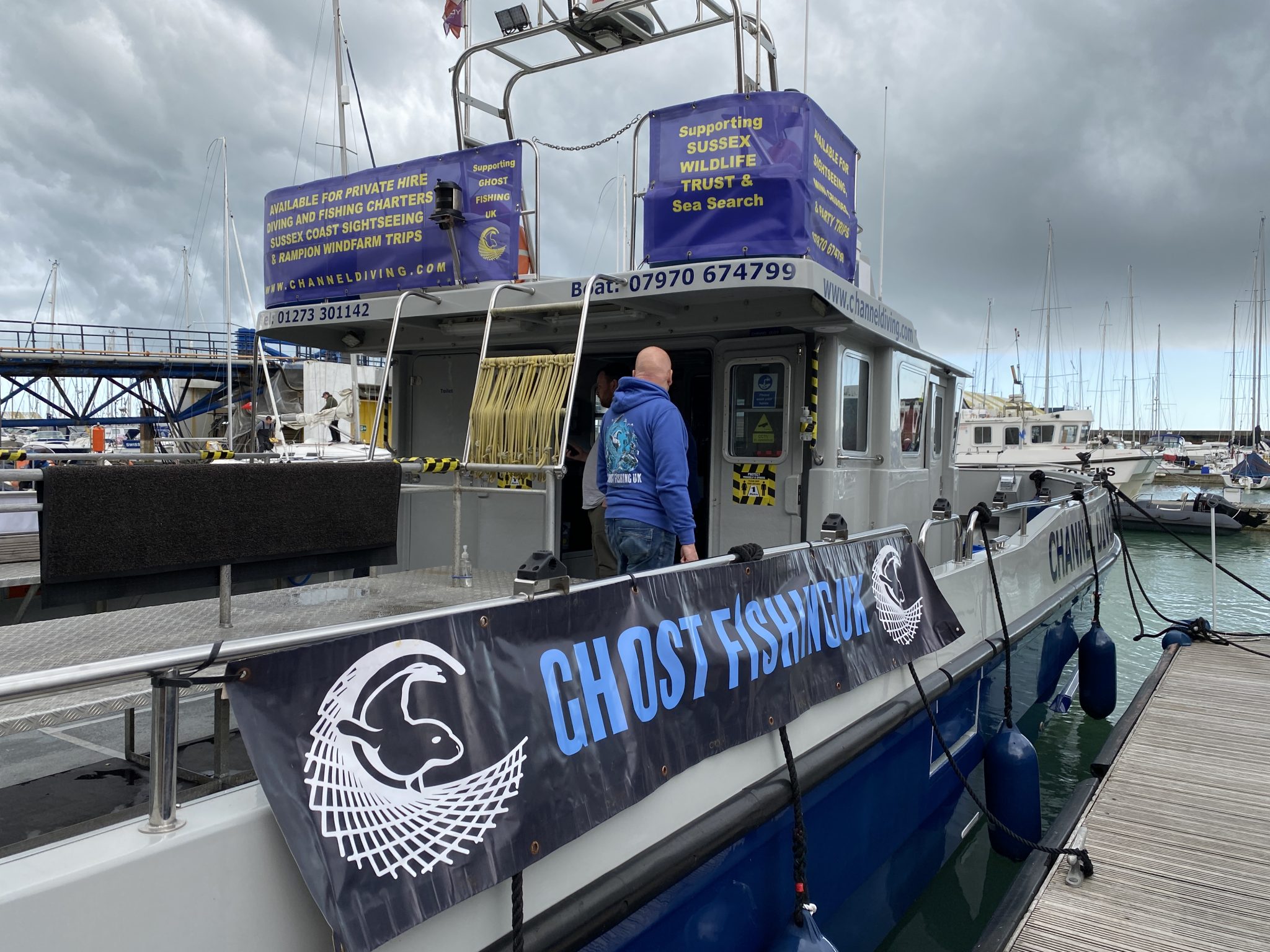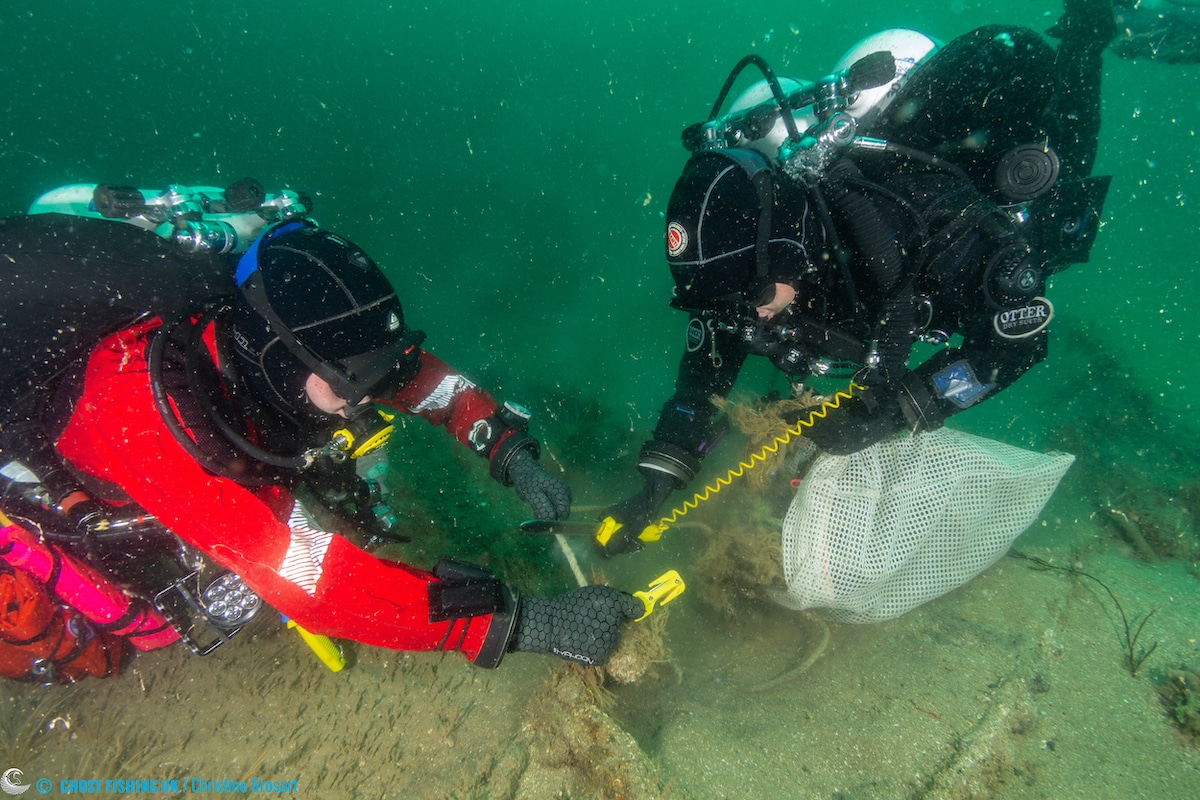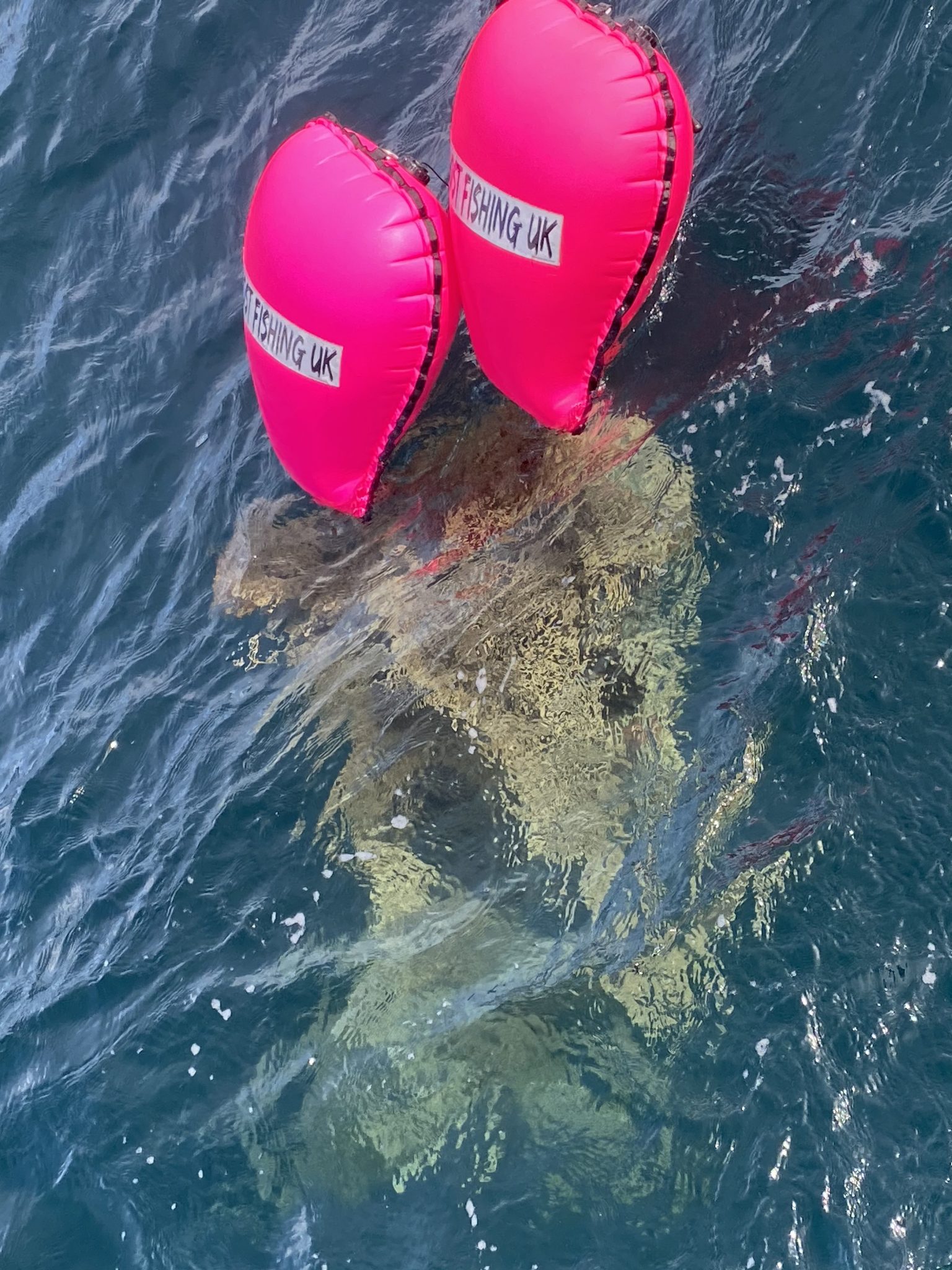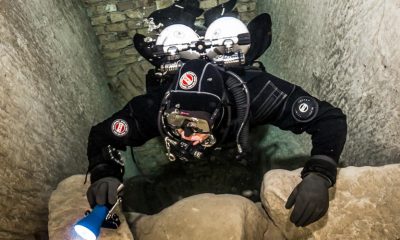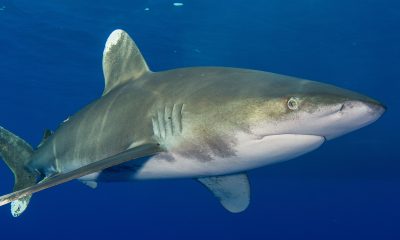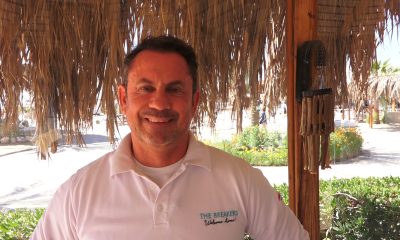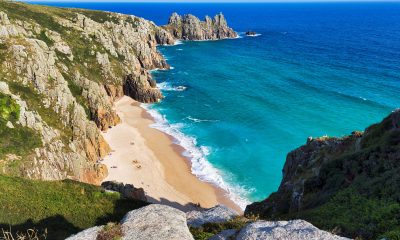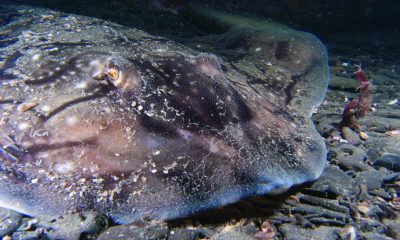Marine Life & Conservation
Ghost Fishing UK remove over 180 kilos of deadly lost fishing gear from Sussex seabed
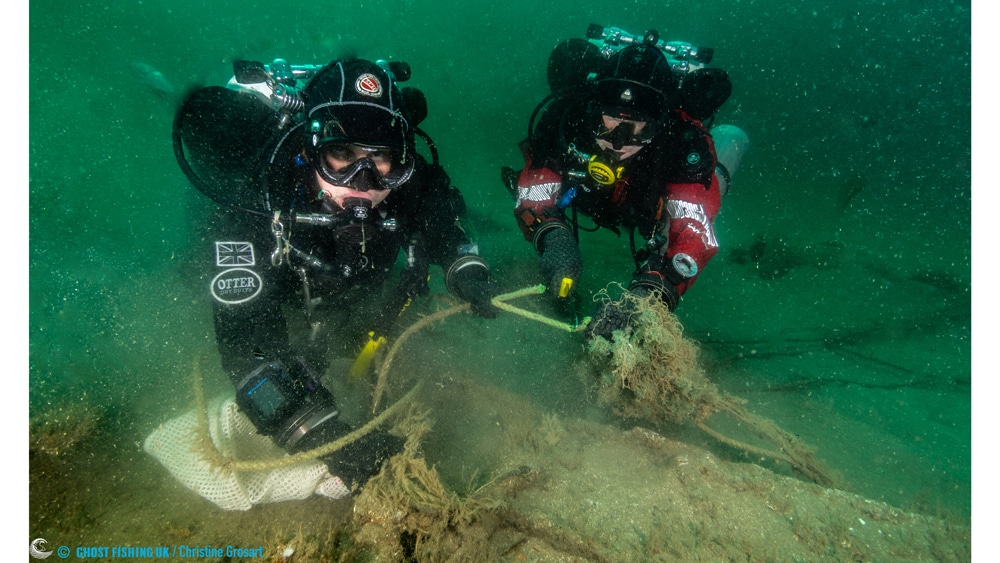
Almost 200Kg of lost fishing gear known as ‘Ghost Gear’ has been recovered from the seabed by volunteer divers from the charity Ghost Fishing UK, in a collaborative project with Sussex Wildlife Trust.
The charity Ghost Fishing UK responded this week to reports from scuba divers in the Brighton area to locate and survey lost fishing nets on the shipwreck of the Pentyrch, before making a plan to remove it.
Lost or abandoned fishing gear is problematic in our oceans, with an estimated 640,000 tonnes lost into the sea globally each year.
The lost nets and pots known as ‘Ghost Gear’ continue fishing non-stop. The catch is never landed and the trapped animals act as bait for others, in a non-stop cycle of wasteful deaths known as ‘Ghost Fishing’.
The team brought the net back on board the diving vessel Channel Diver operating from Brighton Marina and the net will now be stored for recycling.
Despite covid-19 restrictions, the team underwent daily testing and diligent hygiene in order to carry out the mission.
This was the second mission the team of volunteers had undertaken in the Sussex region this year following plentiful reports by scuba divers of lost nets fouling the wrecks in the area, causing a hazard not just to them, but the wildlife along the Sussex coastline.
Working in 18 metres of water, the visibility was good and the divers have so far this season been able to recover 275 Kg of lost nets in just three dives.
Trustee and underwater photographer for the charity Christine Grosart said:
“The team were delighted to be asked to join up with Sussex Wildlife Trust’s ‘Wild Coast Sussex’ project. It was great to have them on the boat so that they could see what goes on at the sharp end of our charity, removing ghost gear from the sea and it was great to finally start cleaning up the Sussex region where we had not been before this spring.”
Wild Coast Sussex was set up to inspire local communities to care for the marine environment and enable them to protect their coast and sea.
As part of a National Lottery Heritage Fund grant, working with the Marine Conservation Society (MCS), Sussex Inshore Fisheries and Conservation Authority (IFCA) and Brighton SEA LIFE, the project aims to:
- Inspire and connect people to the Sussex coast and sea
- Engage people in direct action to protect the Sussex coast and sea
- Enable learning and activities that encourage people to make positive lifestyle choices and behaviour change to reduce negative impacts on the Sussex Coast and sea
- Empower people to share experience and influence others to protect the Sussex coast and sea
Ghost Fishing UK were invited to get involved owing to their extensive experience training divers to survey and safely recover lost fishing gear, which is found via their online reporting system that is open to both fishermen and divers.
Nikki Hills, project manager for Wild Coast Sussex joined the team on board Channel Diver this week. She told us:
“It was fantastic to join the Ghost Fishing UK team on a trip to recover ghost nets off the Sussex Coast and see first-hand the dedicated work of the divers and the amount of net they managed to remove.
Removing this net is so important because if left, it can trap precious marine wildlife and add to plastic in the sea. The Wild Coast Sussex Project is really pleased to support the work of Ghost Fishing UK and it’s great to have them in Sussex.”
The SS Pentyrch was a cargo steam ship, torpedoed in 1918. Plenty of the wreckage can still be seen protruding from the sandy seabed. Unfortunately, these protrusions snag on fishing nets and can cause them to break away. They then continue to fish until they can be removed.
Miss Grosart said “We are very grateful for the reports from divers about these nets. We are also very keen to work with the fishing industry to get these unfortunate losses, which are not deliberate, back out of the sea. We would urge fishermen to tell us if they have lost any pots or nets so that we can see if it is possible for us to remove and then recycle them, or in some cases return them, keeping them out of the ocean forever.
We are soon launching a reporting system dedicated for fishermen so that they can report losses to us in confidence.”
Ghost Fishing UK also works with the key organisations involved in the project, such as Seasearch and the SeaLife Trust and are available to give talks to schools and interested parties about the work they are doing to raise awareness of the issues affecting our oceans.
You can see more about the work of Ghost Fishing UK on this BBC feature here:
For more information visit their website by clicking here.
All image credits: Ghost Fishing UK
Marine Life & Conservation
Leading UK-based shark conservation charity, the Shark Trust, is delighted to announce tour operator Diverse Travel as a Corporate Patron

 Corporate Patrons provide a valuable boost to the work of The Shark Trust. The Trust team works globally to safeguard the future of sharks, and their close cousins, the skates and rays, engaging with a global network of scientists, policymakers, conservation professionals, businesses and supporters to further shark conservation.
Corporate Patrons provide a valuable boost to the work of The Shark Trust. The Trust team works globally to safeguard the future of sharks, and their close cousins, the skates and rays, engaging with a global network of scientists, policymakers, conservation professionals, businesses and supporters to further shark conservation.
Specialist tour operator Diverse Travel has operated since 2014 and is committed to offering its guests high quality, sustainable scuba diving holidays worldwide. Working together with the Shark Trust will enable both organisations to widen engagement and encourage divers and snorkellers to actively get involved in shark conservation.
“Sharks are truly at the heart of every diver and at Diverse Travel, we absolutely share that passion. There is nothing like seeing a shark in the wild – it’s a moment that stays with you forever!” says Holly Bredin, Sales & Marketing Manager, Diverse Travel.
“We’re delighted to celebrate our 10th year of business by becoming a Corporate Patron of the Shark Trust. This is an exciting partnership for Diverse and our guests. We will be donating on behalf of every person who books a holiday with us to contribute towards their vital shark conservation initiatives around the world. We will also be working together with the Trust to inspire divers, snorkellers and other travellers to take an active role – at home and abroad – in citizen science projects and other activities.”
Paul Cox, CEO of The Shark Trust, said:
“It’s an exciting partnership and we’re thrilled to be working with Diverse Travel to enable more divers and travellers to get involved with sharks and shark conservation. Sharks face considerable conservation challenges but, through collaboration and collective action, we can secure a brighter future for sharks and their ocean home. This new partnership takes us one more valuable step towards that goal.”
For more information about the Shark Trust visit their website here.
For more about Diverse Travel click here.
Marine Life & Conservation
Shark Trust Asks Divers to help with Shark Sightings this Global Citizen Science Month

 Whether you are stuck for ideas of what to do with the kids or are off on the dive trip of your dreams. You can get involved in Citizen Science Month and help the Shark Trust by providing vital data about sharks are rays both close to home and further afield.
Whether you are stuck for ideas of what to do with the kids or are off on the dive trip of your dreams. You can get involved in Citizen Science Month and help the Shark Trust by providing vital data about sharks are rays both close to home and further afield.
In addition to reporting the sharks and rays you see on your dives, the eggcases you find on the beach, the Shark Trust is looking for some specific data from divers who are asked to report any Oceanic Whitetip and Basking Sharks.
Oceanic Whitetip Sharks
The Shark Trust are looking specifically for Oceanic Whitetip Shark sightings over the coming weeks and months. So, if you are diving anywhere in the world, please report your sightings via the website or app.
Website: https://recording.sharktrust.org/
App: Search The Shark Trust in your app store
The Oceanic Whitetip. Known for their incredibly long dorsal and pectoral fins, this species was once the most abundant oceanic-pelagic species of shark on the planet.
Large and stocky, they are grey or brown above, and white below and famous for their huge rounded first dorsal fin and paddle-like pectoral fins. The fins also highly prized within the shark fin trade. Whilst they are mostly solitary, Oceanic Whitetips do occasionally hunt in groups.
An inquisitive species, they were easy prey for fisheries. Combined with their low reproductive rate, they were inevitably at high risk of population depletion. And declines of up to 99% have been reported in certain sea areas. They are listed as Critically Endangered on the IUCN Redlist (2019).
Conservation efforts to discourage further declines include listing on CITES Appendix II and CMS Appendix I. They’re also the only species prohibited from take by all the Tuna RFMOs (Regional Fisheries Management Organisations). However, these measures do not mean that Oceanic Whitetips are not still caught – whether targeted or as bycatch – in some parts of the world. With populations declining at such a high rate, effective implementation of management measures is essential to ensure that the species can recover.
If you are lucky enough to get an image of an Oceanic Whitetip and you record your sighting on the Shark Trust app or website YOU CAN WIN! All images submitted with sightings, that also give consent to use in conservation messaging, will be in with a chance to win an Oceanic Whitetip T-shirt and mug. The competition will run until the end of “Shark Month” in July – so keep those sightings (and images) coming in.
Basking Sharks
Basking Shark (Cetorhinus maximus) season is upon us, and the Shark Trust is asking everyone to keep an eye out for these majestic giants over the summer months. If you see any, you can record your sighting to the Basking Shark Sightings database.
Each year, these mighty fish return to British waters to feed on plankton. You may see one, (or a few if you’re really lucky) from around April-October. They can be seen feeding at the surface of the water, where they look like they’re basking in the sun. Thus, their name!
Sighting hotspots around the British Isles include southwest England, Isle of Man, north coast of Ireland, and western Scotland. The Sea of the Hebrides is the most prolific sightings area in Scotland, but they have been spotted all around the coast and have even ventured into some of the sea lochs. The Shark Trust has received thousands of sightings since the Basking Shark project began, but more data is needed to truly understand what is going on with population numbers and distribution. You can help by recording your sightings this summer.
Great Eggcase Hunt
The Shark Trust has an Easter Egg Hunt with a difference for you to try. Take part in the Great Eggcase Hunt and get involved with a big citizen science project that helps shark, ray and skate conservation. And it’s an enjoyable activity for all the family.
The Shark Trust also want snorkellers and divers to record their underwater eggcase findings. Underwater records help pinpoint exactly where sharks and skates are laying their eggs and can help link to beach records. Learning the depth and substrate that they lay on also helps better understand the species.
Find out more: https://www.sharktrust.org/great-eggcase-hunt
Whether you are diving, snorkelling or exploring on the beach you can take part in Citizen Science Month and get actively involved in shark and ray conservation. Find out more: www.sharktrust.org
-

 News3 months ago
News3 months agoHone your underwater photography skills with Alphamarine Photography at Red Sea Diving Safari in March
-

 News2 months ago
News2 months agoCapturing Critters in Lembeh Underwater Photography Workshop 2024: Event Roundup
-

 Marine Life & Conservation Blogs2 months ago
Marine Life & Conservation Blogs2 months agoCreature Feature: Swell Sharks
-

 Blogs2 months ago
Blogs2 months agoMurex Resorts: Passport to Paradise!
-

 Blogs2 months ago
Blogs2 months agoDiver Discovering Whale Skeletons Beneath Ice Judged World’s Best Underwater Photograph
-

 Gear News3 months ago
Gear News3 months agoBare X-Mission Drysuit: Ideal for Both Technical and Recreational Divers
-

 Gear Reviews2 months ago
Gear Reviews2 months agoGear Review: Oceanic+ Dive Housing for iPhone
-

 Marine Life & Conservation2 months ago
Marine Life & Conservation2 months agoSave the Manatee Club launches brand new webcams at Silver Springs State Park, Florida


